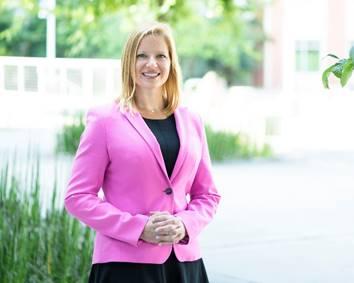
Mentoring, Culture, and Climate
An impressive 80% of our directorate participated in the lab’s recent Culture and Climate Survey, and I am committed to acting on what we learn from the results. One area we have been working on this year is mentoring. Nuclear Energy and Fuel Cycle led a pilot pod mentorship program in FY21, and all areas of the directorate are preparing plans for FY22. Some of the positive outcomes from the pilot program included fostering inclusive networks, building a sense of community, and cross-training in specific skills. I hope these reflections encourage you to grow mentoring opportunities across FFESD.
—Kathy McCarthy, Associate Laboratory Director, September 2021

What exactly is pod mentoring?
This format uses a small group structure, which creates a different environment from traditional one-on-one mentoring. In our trial run, groups of six to 12 members were organized around themes, with an experienced leader at the helm of discussions as each group explored its topic. Discussions are open, with members encouraged to ask questions and share insights.
How is this structure beneficial?
Early feedback from pilot participants indicates that one of the best benefits was enriched networking. “Being in a small group that met regularly over a period of months created a comfortable setting. It led to conversations starting and relationships forming that wouldn’t have happened otherwise,” said Dianne Bull Ezell, a group leader who participated.
Another benefit is the two-way flow of information. “In a pod, everyone has a voice and can be heard,” said Duke Hughes, a technical manager with US ITER who is thinking about options for future approaches. “It provides a mechanism for experience and knowledge to be shared up the chain as well as down to better create the workplace culture we’re striving to create.”
What themes were offered?
In the pilot program, popular topics included leadership development and communication; proposal writing; ORNL structure, funding, and strategic planning; community outreach; diversity, equity, and inclusion; networking within your division; and technical topics (such as techniques for chemical and physical experiments).
Who participated?
The pilot program was open to all stages of career growth, from newcomers to experienced staff, in our Nuclear Energy and Fuel Cycle Division. Participants report that this mix of experience spawned enriching discussions.
“In my pod, the division director led the discussions, and the participants included group leaders as well as staff members,” said Jeff Powers, an engineer in the advanced reactor systems section. “A lot of learning occurred, with members sharing insight with one another. Hearing practical, real-life examples of how others handled certain situations was incredibly useful.”

